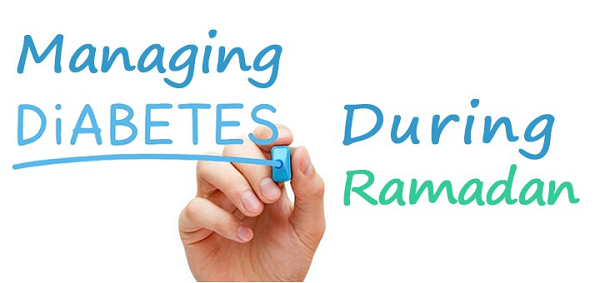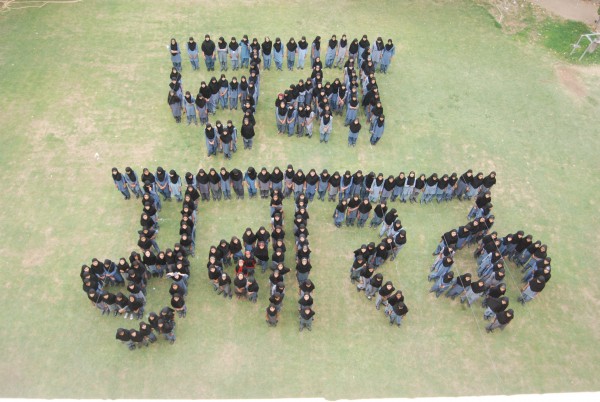
by Editor | May 25, 2021 | Halal Industries

New Delhi, (IANS) Diabetic patients who fast during Ramadan are likely to be at risk of major health complications. Hence they should fast only if their doctors consider them fit enough, experts say.
The month-long period that is typically marked by long fasting hours during daylight hours is followed by grand feast each evening after sunset (Iftaar), which can be continued till pre-dawn (Sehri).
According to health experts, such long gaps between meals that range from 12 to 15 hours may lead to metabolic changes in the body, which can pose serious health problems for diabetes patients.
“If you are diabetic but still want to keep the fast during Ramadan, it is always better to consult your doctor to take all necessary precautionary measures while fasting,” Vikas Ahluwalia, Director (Diabetes and Obesity Center) at the Max Super Speciality Hospital, Saket, told IANS.
Diabetes is a health condition that occurs when sugar rises in the blood as a result of deficiency in the insulin hormone or the resistance of the body cells leading to the accumulation of glucose in the blood.
Restriction of fluid intake during such fasts can result in dehydration as well as fluctuations in sugar levels.
“Long fasting, combined with food intake two-three times over a short span of time may cause wide fluctuation in sugar levels,” Rakesh Kumar Prasad, Senior Consultant (Department of Endocrinology) at Fortis Hospital, Noida, told IANS.
Diabetics while fasting can either face hypoglycemia — a sudden fall in blood sugar levels — which can cause seizures and unconsciousness or hyperglycemia — increase in blood sugar — which may cause blurry vision, headaches, increased fatigue and thirst.
Type 1 diabetics, or those who have a history of recurrent hypoglycemia, are at a higher risk if they fast.
“Patients are required to monitor their blood glucose level at regular intervals. In case a patient is on insulin, there may be a need to change its dosage,” Shehla Shaikh, Consultant (Endocrinologist) from Mumbai’s Wockhardt Hospitals, pointed out.
Doctors said the condition of diabetics can worsen with a “potentially life-threatening complication” called diabetic ketoacidosis — a serious complication in which the body produces excess blood acids (ketones) and which causes vomiting, dehydration, deep gasping breathing, confusion and even coma.
They can also develop thrombosis, which leads to formation of a blood clot.
“Doctors and patients must work together on how to organise medication and diet schedules so that diabetes is managed effectively during the 30 days of Ramadan,” A. Ramachandran, founder of Chennai’s Dr. A. Ramachandran’s Diabetes Hospital, told IANS.
Ideally, one should consult a doctor a month in advance and follow the advice given on diet, insulin dosage and any other medication prescribed, the doctors suggested.
It is essential for diabetic patients to control the intake of high carbohydrate foods, as they affect the sugar level particularly for people with Type 2 diabetes.
Consumption of carbohydrates such as sugar, rock sugar, palm sugar, honey and sweetened condensed milk should be limited.
However, carbohydrates with a low glycemic index such as brown rice, full grain bread and vegetables are better options than white rice, non-full grain bread or potatoes.
While breaking the day-long fast, the body needs to be well hydrated and one should drink sugar-free and decaffeinated fluids.
“It is important for a diabetic to take natural sugar in the form of fruits instead of juices,” renowned dietician and nutritionist Ritika Samaddar told IANS.
At Sehri one should eat food in small quantities. Avoid sweets, fried snacks and foods that have high salt or sugar content. Also, one should not sleep soon after dinner. A minimum two-hour interval should be maintained.
“It is important to take a balanced meal with 20 percent to 30 percent of it as protein. A good idea would be to include fruits, vegetables and salads in your meals and to use healthier cooking methods such as baking and grilling,” Ramachandran maintained.
The Sehri should include more proteins and less carbohydrate with lots of fruits, whole grain bread, whole grain low sugar cereals, beans and lentils.
“Combine the pre-dawn food with proteins like eggs or dal which gradually releases energy through the day. To make up for the whole day, a wholesome meal consisting of carbohydrates, proteins and healthy fats is important,” Samaddar explained.
“For diabetic patients, the decision to fast should be made keeping in mind religious guidelines for exemption and after careful medical consultation to ensure a safe and healthy Ramadan,” Ahluwalia noted.

by Editor | May 25, 2021 | Opinions, Web Exclusive

By Abu Namara
With an evident object to disseminate the egalitarian message of Juma, particularly the one of Ramadan, students of a Jodhpur-based minority institution used human chain as their medium of expression.
Yesterday, the students of Firoz Khan Memorial Girls Senior Secondary School assembled in the play ground of the school and lined up to form a figure “Juma Mubarak” to put across their compliments on the eve of the 3rd Friday of the current month of Hijrah calendar, Ramadan.
Ramadan is widely acknowledged as a month that denotes spirituality, humanity and peace in human life and has been rightly chosen by the girls of the school to externalize these qualities through their human chain.
The human chain they arrayed together effectively underlines the values of fraternity, equality, orderliness and cooperation, which the line ups of Friday prayers effectively represent. The beeline of the figure comprised all the students of the institution, both Muslim and non-Muslim.
Apart from fasting and prayers, the month is known to inculcate the spirit of caring and sharing among the believers and teach to line up as one organic whole of human beings, all standing in one row; may be a king or a slave, a billionaire or .a wretched one, a learned or a layman; all alike in a shoulder-to-shoulder arrangement.
On this occasion the school principle Shamim Shaikh addressed to the students and said, “Fasting is an essential part of Islamic teachings. It relieves the performer from debilities and makes one’s health sound and avid. The wealthy believers are made to share their riches with fellow human beings.”
The incharge of the event and a teacher of the school, Reena Goyal, congratulated the girls and their families on the eve of 3rd Friday of the holy month and advised the students to uphold humanity ever high and abstain from anything that could harm human well being. She was assisted by her colleagues Kavita Dabi, Mohit Rathor, Pinky, Laxmi Bhati, Rukhsana, Nikhat Mirza, Manju Bhati, Shabnam Jahan, Humaira and Kiran.
The school run under Marwari Muslim Educational and Welfare Society, Jodhpur, in a posh locality Kamla Nehru Nagar, innovatively thought to teach a few great lessons of the holy month to its students and also to broadcast the underlined message to one and all. This Society was established in 1927 by the erstwhile king of Jodhpur state, Maharaja Gaj Singh, to promote education in his Muslim subjects and since then it provides yeomen service to the cross-sections of society including Muslims. Now, the Society is also running a minority university, the first in Rajasthan, bearing the name Maulana Azad University, Jodhpur.

 New Delhi, (IANS) Diabetic patients who fast during Ramadan are likely to be at risk of major health complications. Hence they should fast only if their doctors consider them fit enough, experts say.
New Delhi, (IANS) Diabetic patients who fast during Ramadan are likely to be at risk of major health complications. Hence they should fast only if their doctors consider them fit enough, experts say.
 New Delhi, (IANS) Diabetic patients who fast during Ramadan are likely to be at risk of major health complications. Hence they should fast only if their doctors consider them fit enough, experts say.
New Delhi, (IANS) Diabetic patients who fast during Ramadan are likely to be at risk of major health complications. Hence they should fast only if their doctors consider them fit enough, experts say.